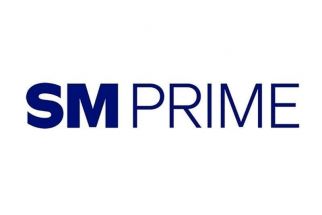A warning to the public
November 12, 2003 | 12:00am
The Securities and Exchange Commission (SEC) should look into this very carefully in the interest of the investing public.
Our sources have revealed that a company purporting to be the holder of a broadcasting franchise is now seeking approval from the SEC to offer 76.6 million common shares to the public and from the Philippine Stock Exchange to list all its issued and outstanding shares at the second board of the PSE.
The same company is also applying with the National Telecommunications Commission (NTC) for a license to install, operate, and maintain a multi-channel microwave distribution system (MMDS). MMDS is a communications service that operates in the ultra-high frequency (UHF) portion of the radio spectrum and is also known as wireless cable. However, an MMDS license needs the necessary congressional franchise to go into broadcasting. While the said company says in its articles of incorporation that its primary purpose is to engage in broadcasting services, it is very clear in its congressional franchise that the firm is not authorized to offer any broadcasting service like MMDS and instead limits its business to telecommunications services.
In fact, the NTC group in charge of broadcast as well as its legal department should not have even taken notice of Transpacific Broadcast Group Intl. Inc. (TBGI)’s application. One entity has already filed a motion to dismiss TBGI’s application. I understand though that top NTC officials have already been alerted as to this anomaly and the commission has no plans of granting the application. After all, even if TBGI is able to get a license from NTC, there is no available MMDS frequency in Metro Manila since the NTC has already previously assigned this to another company.
By its very name though, TBGI gives the wrong impression to the public that it is allowed to go into broadcasting. In fact, in its prospectus, TBGI says that the net proceeds of the proposed offering of as much as P99.3 million will be used for equipment acquisition to allow it to expand its satellite uplink business, media broadcasting, broadband Internet services, and install MMDS infrastructure.
TBGI by the way has nine shareholders of record, with Unipage Management Inc. having beneficial ownership interest of 93.83 percent prior to the offer.
Even its business plan rests largely on being able to install an MMDS system. Unfortunately, TBGI will never be able to get an MMDS license from the NTC.
So what really is MMDS? It is a local broadcast delivery system capable of distributing video, data, and voice signals in a broadcast mode from a central transmitter site to individual residential locations. According to a study prepared by TBGI on the proposed MMDS in Metro Manila, it intends to provide a solution to the challenges of digital broadcasting through the installation, operation, and maintenance of MMDS. It notes that the potential for digital broadcasting in the Philippines has not yet reached its peak but it is expected to grow significantly once a trendsetter has effectively implemented MMDS.
Offering wireless cable television falls under broadcasting. And to engage in broadcasting, one needs a congressional franchise specifically for that. TBGI’s application looks very sound on paper, filling it with all these mumbo-jumbo technical stuff which can easily confuse the SEC into believing that the company already has a thriving business in place.
Hidden Agenda can be reached at [email protected]
Our sources have revealed that a company purporting to be the holder of a broadcasting franchise is now seeking approval from the SEC to offer 76.6 million common shares to the public and from the Philippine Stock Exchange to list all its issued and outstanding shares at the second board of the PSE.
The same company is also applying with the National Telecommunications Commission (NTC) for a license to install, operate, and maintain a multi-channel microwave distribution system (MMDS). MMDS is a communications service that operates in the ultra-high frequency (UHF) portion of the radio spectrum and is also known as wireless cable. However, an MMDS license needs the necessary congressional franchise to go into broadcasting. While the said company says in its articles of incorporation that its primary purpose is to engage in broadcasting services, it is very clear in its congressional franchise that the firm is not authorized to offer any broadcasting service like MMDS and instead limits its business to telecommunications services.
In fact, the NTC group in charge of broadcast as well as its legal department should not have even taken notice of Transpacific Broadcast Group Intl. Inc. (TBGI)’s application. One entity has already filed a motion to dismiss TBGI’s application. I understand though that top NTC officials have already been alerted as to this anomaly and the commission has no plans of granting the application. After all, even if TBGI is able to get a license from NTC, there is no available MMDS frequency in Metro Manila since the NTC has already previously assigned this to another company.
By its very name though, TBGI gives the wrong impression to the public that it is allowed to go into broadcasting. In fact, in its prospectus, TBGI says that the net proceeds of the proposed offering of as much as P99.3 million will be used for equipment acquisition to allow it to expand its satellite uplink business, media broadcasting, broadband Internet services, and install MMDS infrastructure.
TBGI by the way has nine shareholders of record, with Unipage Management Inc. having beneficial ownership interest of 93.83 percent prior to the offer.
Even its business plan rests largely on being able to install an MMDS system. Unfortunately, TBGI will never be able to get an MMDS license from the NTC.
So what really is MMDS? It is a local broadcast delivery system capable of distributing video, data, and voice signals in a broadcast mode from a central transmitter site to individual residential locations. According to a study prepared by TBGI on the proposed MMDS in Metro Manila, it intends to provide a solution to the challenges of digital broadcasting through the installation, operation, and maintenance of MMDS. It notes that the potential for digital broadcasting in the Philippines has not yet reached its peak but it is expected to grow significantly once a trendsetter has effectively implemented MMDS.
Offering wireless cable television falls under broadcasting. And to engage in broadcasting, one needs a congressional franchise specifically for that. TBGI’s application looks very sound on paper, filling it with all these mumbo-jumbo technical stuff which can easily confuse the SEC into believing that the company already has a thriving business in place.
Hidden Agenda can be reached at [email protected]
BrandSpace Articles
<
>
- Latest
- Trending
Trending
Latest
Trending
Latest
Recommended































